Client retention software is becoming a critical tool for businesses that want to thrive in a competitive marketplace. Unlike tools that solely focus on acquiring new customers, this software is designed to nurture existing relationships, reduce churn, and increase the lifetime value of clients. By tracking customer behavior, automating personalized communication, and analyzing feedback, client retention software enables companies to proactively address customer needs. Whether you’re a small business or a large enterprise, maintaining long-term relationships is more cost-effective than constant acquisition, and this software acts as the backbone of that strategy. It’s not just about keeping clients—it’s about keeping them happy, loyal, and engaged.
Key Features of Effective Client Retention Software
An effective client retention software comes equipped with features that allow businesses to deeply understand and interact with their customers. These typically include CRM integrations, automated follow-up systems, customer segmentation tools, satisfaction surveys, and churn prediction analytics. Many platforms also offer loyalty program support and personalized email marketing functionalities. These features work together to create a comprehensive profile of each client, helping businesses tailor their services and communication to individual preferences. By leveraging data-driven insights, companies can identify when a client is disengaging and take action to re-engage them quickly. These capabilities turn reactive support into proactive relationship management.
Why Client Retention Software Matters
Client retention software matters because retaining a customer is significantly cheaper than acquiring a new one. In most industries, increasing customer retention by just 5% can boost profits by 25% or more. Loyal clients also tend to spend more over time and are more likely to refer others. This software helps companies understand the reasons behind client churn and provides tools to intervene before relationships deteriorate. It also allows businesses to scale personalized engagement, which was once only possible with a small customer base. In a world where consumers expect personalized, responsive service, using client retention software is no longer optional—it’s essential for sustainable growth.
Types of Businesses That Benefit Most
While any business that values long-term client relationships can benefit from client retention software, certain industries stand to gain the most. Subscription-based services like SaaS companies rely heavily on recurring revenue and need to ensure their clients continue using their platforms. E-commerce businesses use these tools to encourage repeat purchases through loyalty programs and personalized marketing. Financial services and healthcare providers use retention tools to maintain trust and ensure consistent client communication. Even service-based industries such as real estate or marketing agencies use retention software to build lasting relationships and secure future business. No matter the sector, keeping clients engaged and satisfied is a universal priority.
Personalization and Customer Experience
One of the biggest strengths of client retention software is its ability to enhance personalization at scale. With customer data centralized and analyzed, businesses can tailor every interaction to individual preferences, purchase history, and behavioral trends. From customized email campaigns to personalized offers and loyalty rewards, this software creates experiences that resonate with clients. When clients feel understood and valued, they are far more likely to stick around. Beyond just selling, the software supports building relationships based on relevance, convenience, and consistency. By focusing on the customer experience, companies move from transactional interactions to emotional connections that foster long-term loyalty.
Data Analytics and Retention Insights

Client retention software provides powerful data analytics tools that give businesses a clear picture of their retention performance. Through dashboards, reports, and predictive analytics, companies can monitor key metrics like churn rate, customer lifetime value, Net Promoter Score (NPS), and satisfaction trends. These insights help organizations identify what’s working and what needs improvement in their client relationships. Predictive algorithms can even alert teams when a client shows signs of disengagement, allowing for timely outreach. Data-driven decisions lead to more targeted retention strategies and measurable results. In today’s business environment, insights from client retention software give companies a competitive edge by making loyalty management smarter and more strategic.
Integrating With Other Business Systems
For client retention software to be most effective, it needs to integrate seamlessly with other core business systems like CRM platforms, email marketing tools, help desks, and payment gateways. Integration ensures that data flows freely between departments, creating a unified view of each client’s journey. For example, syncing with a CRM allows sales and support teams to track every customer touchpoint, while email integration enables automated yet personalized communication. These connected systems ensure no opportunity is missed, and clients don’t fall through the cracks. The best client retention software solutions are designed with flexibility in mind, allowing for smooth integrations and a more connected customer experience.
Automation for Consistency and Scale
Automation is a game-changer when it comes to client retention, and most modern client retention software includes powerful automation tools. These tools can trigger follow-ups after a purchase, send reminders for subscription renewals, launch re-engagement campaigns, or even notify account managers when a client hasn’t interacted in a while. Automation ensures that no customer is forgotten, and it provides consistent communication without requiring manual effort for every action. This allows businesses to scale their retention efforts without sacrificing quality or personalization. The key is to balance automation with a human touch, ensuring that clients feel genuinely cared for, not just managed by a system.
Improving Customer Support and Satisfaction
Excellent customer service is at the heart of client retention, and client retention software enhances support operations by organizing customer histories, tracking issue resolution, and providing instant access to feedback. This allows support teams to respond faster, personalize their assistance, and follow up appropriately. When clients feel heard and valued during a problem, they are far more likely to remain loyal. The software also allows for proactive outreach, checking in with clients after service delivery or product usage to ensure satisfaction. This commitment to quality support strengthens relationships and encourages clients to stick with the brand long-term.
Trends Shaping the Future of Retention Tools
The future of client retention software is being shaped by advancements in artificial intelligence, machine learning, and behavioral analytics. AI is increasingly being used to predict client needs and recommend the next best actions to keep them engaged. Chatbots and AI-powered assistants provide 24/7 personalized support, while machine learning algorithms improve churn prediction accuracy. Additionally, the use of real-time customer feedback loops, gamified loyalty systems, and hyper-personalized messaging is growing. As customer expectations evolve, retention software will continue to adapt by offering smarter, faster, and more human-like interactions. Businesses that stay ahead of these trends will gain a strong competitive advantage in retaining valuable clients.
Conclusion
Client retention software is more than just a tool—it’s a strategic investment in customer loyalty, brand reputation, and sustainable growth. By combining automation, personalization, data analytics, and seamless integrations, this software empowers businesses to build lasting relationships with their clients. It helps identify risk, encourages proactive communication, and enhances the customer experience at every touchpoint. In today’s crowded marketplace, retaining clients isn’t just important—it’s essential. Companies that prioritize retention using the right tools will enjoy stronger customer relationships, higher lifetime value, and consistent business growth. Client retention software is the key to transforming satisfied clients into lifelong advocates.
